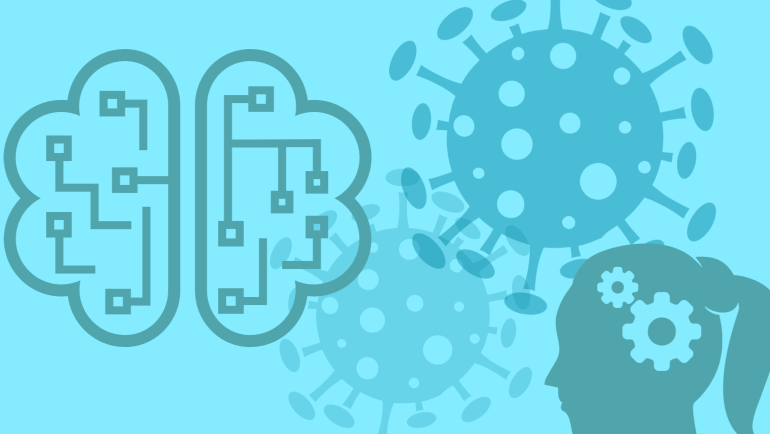
DETROIT – Children have been less impacted by COVID-19 caused by the severe acute respiratory syndrome coronavirus 2 (SARS-CoV-2) than adults. But some children diagnosed with SARS-CoV-2 have experienced severe illnesses, including Multisystem Inflammatory Syndrome (MIS-C) and respiratory failure; nearly 80% of children with MIS-C become critically ill with a 2 to 4% mortality rate.
Currently, there are no methods to discern the spectrum of the disease’s severity and predict which children with SARS-CoV-2 exposure will develop severe illness, including MIS-C. Because of this, there is an urgent need to develop a diagnostic modality to distinguish the varying phenotypes of disease and risk stratify disease.
To prevent children from becoming critically ill from SARS-CoV-2, a team of Wayne State University researchers led by Dongxiao Zhu, Ph.D., associate professor of computer science in the College of Engineering, are developing an artificial intelligence (AI) model to aid in the early detection of severe SARS-CoV2 illness in children.
Zhu is working with researchers from Central Michigan University and Penn State University, who are working to define and compare the salivary molecular host response in children with varying phenotypes of SARS-CoV-2 infections and develop and validate a sensitive and specific model to predict severe SARS-CoV-2 illness in children. They are working to develop a portable, rapid device that quantifies salivary miRNAs with comparable accuracy to predicate technology (qRT-PCR). Zhu and his team will develop an AI-assisted cloud and mobile system for early recognition of severe SARS-CoV-2 infection in children.
The research team aims to develop an innovative and efficient AI model with cloud and edge intelligence-integrating noninvasive biomarkers with social determinants of health and clinical data to aid with early detection of severe SARS-CoV-2 illness in children.
Currently, severe disease is challenging to discern given the low rate of occurrence, spectrum of symptoms mimicking other common infections, lag period before development of severe illness and absence of a sensitive diagnostic tool. This has led to an urgent need to develop a sensitive, noninvasive and rapid modality to predict severe illness.
“Our research is critical as we expect to improve outcomes of children with severe SARS-CoV-2 infection via early recognition, timely intervention and appropriate allocation of critical resources,” said Zhu. “The successful completion of the project will also be significant, as it will lead to the development of a rapid bedside diagnostic device and creation of patient profiles based on individual risk factors which we expect to lead to personalized treatments in the future.”
The two-year project, Severity Predictors Integrating Salivary Transcriptomics and Proteomics with Multi Neural Network Intelligence in SARS-CoV2 Infection in Children (SPITS MISC), received $1,433,469 from the Eunice Kennedy Shriver National Institute of Child Health and Human Development of the National Institutes of Health.
The National Institutes of Health awarded eight research grants to develop approaches for identifying children at high risk for MIS-C. Up to $20 million will be provided for the projects over four years, pending the availability of funds. All eight awards will be eligible to compete for four R33 awards in the future.
Zhu’s co-principal investigators on the project are Usha Sethuraman, M.D., Central Michigan University and Steven Hicks, M.D., Ph.D., Penn State University Hershey Medical Center.
The project number for this grant is R61HD105610.
About Wayne State University
Wayne State University is one of the nation’s pre-eminent public research universities in an urban setting. Through its multidisciplinary approach to research and education, and its ongoing collaboration with government, industry and other institutions, the university seeks to enhance economic growth and improve the quality of life in the city of Detroit, state of Michigan and throughout the world. For more information about research at Wayne State University, visit research.wayne.edu.
